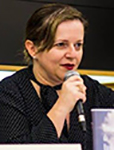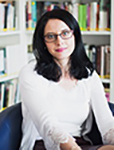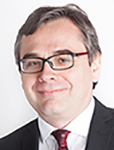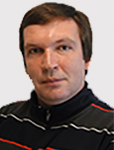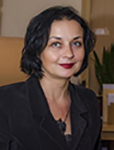


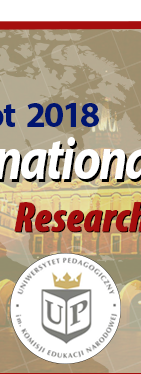
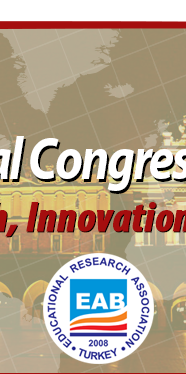
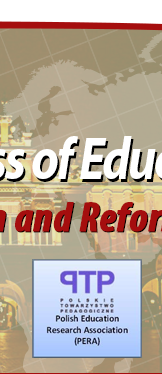
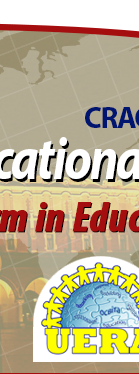
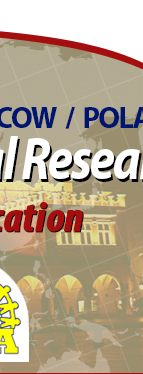

|
“Research, Innovation and Reform in Education” ICER 2018 17-19 September 2018 Cracow, Poland
|
|
|
Profesor Geovana Mendonça Lunardi Mendes Universidade do Estado de Santa Catarina - UDESC Programa de Pós-graduação em Educação |
|
|
|
Politics of Educacional Borrowing and policies of technology insertion in schools in Latin American |
|
|
This presentation discusses how in recent years the policies of technology insertion have become a constant agenda of education policies. Considering Brazil as a context, the paper presents the partial results of a series of investigations conducted by the author and her group that analyze how, in education policies, technology insertion, through specific programs as in 1:1 model, represent a change of ideas and curricular innovation at school. In addition, it discusses, based on the global education policy concept, the role of governments and states in the adoption of policies presented around the world. Therefore, this paper is organized in two sections: the first discusses the 1:1 Model in the context of education policies, and the second discusses the issue of curricular changes announced by these policies. Keywords: Curricular changes; Education policies; Digital technologies; 1:1 model. |
|
Aneta Maria Kochanowicz, PhD Dolnośląska Szkoła Wyższa, Wroclaw, Poland |
|
|
|
Hermeneutic ethics - to know, describe, interpret, understand. The Problem-Centered Interview according to Andreas Witzel as a way to reach the interlocutors' experience |
|
|
In June 2016, I defended my doctoral dissertation under the title Contexts of the Meaning of Life and the Sense of Care for a Child with Apallic Syndrome, publishing it soon after with minor changes in the form of a monograph entitled Child in a Coma. The Meaning of Life, the Sense of Caring (Łódź 2016). During the methodological workshops I would like to present the adopted research perspective, defined by hermeneutics and ethics (formulation of research questions and description language), as well as my role of a moderator ordering issues of cognition, description, interpretation and understanding of one of the boundary situations: the existential situation of a child in an apallic state (commonly referred to as coma). I assumed that every child case studied is a fragment of universal social experience. That is why I made an attempt to create a community of discourse, taking into account different perspectives arising from the social roles of my "interlocutors" (philosophers, lawyers, bioethics, medical doctors, journalists, filmmakers, writers). Above all, however, I gave my voice to parents, competent narrators - protagonists of the struggle to wake up their child from a coma. I interviewed them at the "Budzik" Clinic in Warsaw with the help of the problem-centered interview developed by Andreas Witzel. An important element of the research procedure was the analysis of audiovisual materials, autobiographical documents created by parents of children with apallic syndrome (books, letters, diaries, press interviews, written statements and internet diaries - blogs), my own field notes and "records in my head". My research path (consisting of 7 stages and based on 8 principles) led me somewhat to becoming a co-creator of the cultural identity of a child with apallic syndrome: by writing about who he is, I also asked questions about the essence of humanity in genere. |
|
Anatoly Oleksiyenko, PhD Faculty of Education University of Hong Kong |
|
|
|
Academic Research and Writing: Shaping Competence and Confidence for Globally Influential Publications |
|
|
This seminar will shed light on structural imperatives in the design of research proposals and papers. The presenter will share techniques for composing and aligning key structural elements: the abstract, problem statement, literature review, theoretical framework, methodology, findings, discussion, and conclusion. The participants will explore essential tools and tips for using a paragraph as a unit of communication to sustain a clear and consistent line of argument. The format of this seminar is a collegial discussion. Participants are welcome to share their experiences, as well as pose questions and provide answers. The driving idea behind this seminar is that skills can be easily learned through an empowering exchange among scholars. The objective is to replace anxiety about competitive performance and productivity with a sense of joy and confidence associated with academic writing and peer review. |
|
Sergiy Kurbatov, PhD Institute of Higher Education, National Academy of Educational Sciences of Ukraine & |
|
|
|
University Rankings as an Alternative Mechanism for Quality Assurance |
|
|
During the workshop I plan to introduce to the audience a brief historical background and my analyses of current situation with university rankings as a new, innovative and dynamic tool for quality assurance in higher education, which is very sensitive to the interests and demands of the main stakeholders in this area. Together we would analyze the main criteria and indicators of the most influential international university rankings: Academic ranking of world universities (ARWU or Shanghai ranking - http://www.shanghairanking.com/); QS world university rankings (https://www.topuniversities.com/qs-world-university-rankings ) and THE world university rankings (https://www.timeshighereducation.com/world-university-rankings ), as far as Ranking web of world universities (Webometrics - http://www.webometrics.info/en ). The participants of the workshop would be encouraged to conduct SWOT-analyses of these rankings and then to present the results to the audience. After this we expect an open discussion of the main ways of improvement of the theory and methodology of university rankings and their role in contemporary academic life. |
|
Professor Oksana Zabolotna Pavlo Tychyna Uman State Pedagogical University, Ukraine |
|
|
|
The workshop on Action Research |
|
|
School teachers and university professors who engage in action research inevitably find it to be an empowering experience. Action research is always relevant to the participants as they determine the focus of each research project and they are also the primary consumers of the findings. The workshop will give the participants awareness of the nature, purposes and processes of action research. They will also become aware of different strategies for collecting and analyzing action research data. The workshop will be organized in the way that, working in small groups, the participants will construct their own idea of what action research is, as well as they will gain practical skills of how to design this kind of research. |
